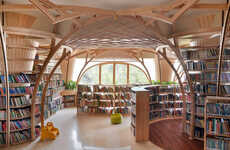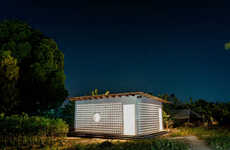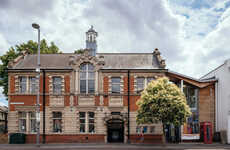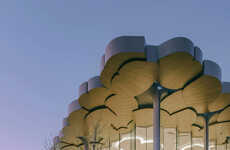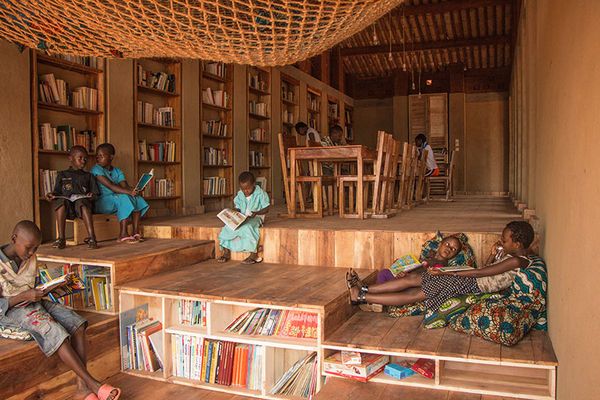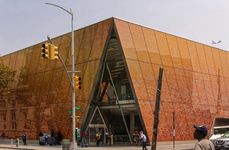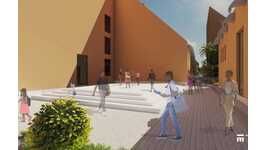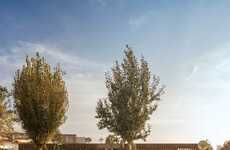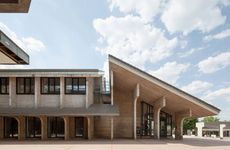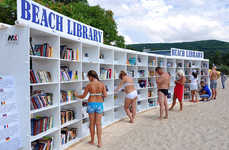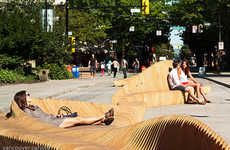
This Library was Designed by BC Architects for a School for Deaf Children
Lacey-Jane Walsh — January 28, 2014 — Social Good
References: architects.bc-as.org & designboom
BC Architects designed this brilliant wood-covered library as part of a school devoted to deaf children, which is currently under construction in Muyinga, Burundi. This is actually the first library to ever be built in Muyinga, which is in itself exciting. This cozy library provides its community with a beautiful book-filled spot that doubles as a hideout from extreme heat or pouring rain.
The interior of this striking library features a netted hammock which allows children to curl up with a good book in a comfortable position. There are also tables and chairs within the library, which means that there's plenty of space for knowledge-hungry individuals to hunker down and read. This space also incorporates bookshelf steps, which means that this library is completely packed with books.
This cleverly designed library provides people with a chic space in which to read and relax.
Photo Credits: designboom, architects.bc-as.org
The interior of this striking library features a netted hammock which allows children to curl up with a good book in a comfortable position. There are also tables and chairs within the library, which means that there's plenty of space for knowledge-hungry individuals to hunker down and read. This space also incorporates bookshelf steps, which means that this library is completely packed with books.
This cleverly designed library provides people with a chic space in which to read and relax.
Photo Credits: designboom, architects.bc-as.org
Trend Themes
1. Deaf Community Libraries - Designing libraries tailored specifically for the hearing-impaired can be a potential disruptive innovation opportunity.
2. Sustainable Libraries - Creating libraries designed with sustainable materials and energy-efficient features is a trend with great potential for innovation.
3. Mobile Libraries - Exploring the concept of a mobile library that can bring books and resources to underserved communities could be a disruptive innovation opportunity.
Industry Implications
1. Architecture - There is potential for architecture firms to specialize in designing libraries that cater to specific communities, such as the hearing-impaired.
2. Education - Schools and educational institutions could incorporate sustainable design features when building libraries and other structures.
3. Non-profit - Non-profit organizations focused on literacy and education could explore the potential of mobile libraries to reach underserved communities.
6
Score
Popularity
Activity
Freshness


